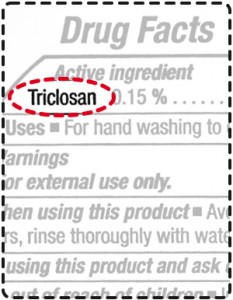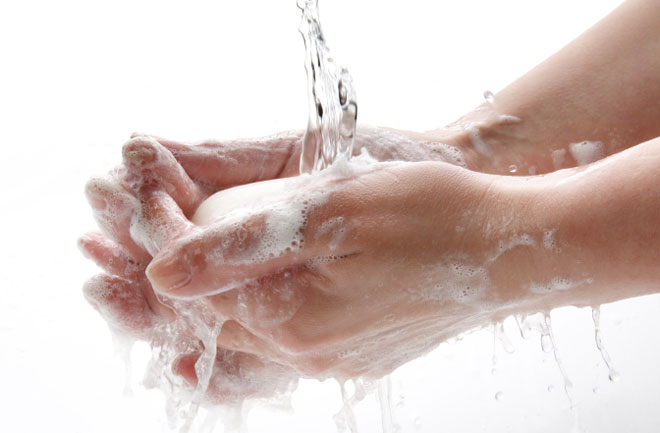by
Stepy —
August 15, 2014
- Healthy living is a life style. It is about the organic foods you eat, the skin care you use, and the natural solutions you select to clean and take care of your home and garden.
- Healthy living is also about being educated on the latest health news so you can take steps to keep you and your loved ones safe.
- Do you still reach for hand soaps labeled “antibacterial”? Think again.
- The Food and Drug Administration (FDA) has proposed a new rule, requiring antibacterial soap and body wash manufacturers to prove that the products they make are more effective than just plain soap and water.
- Not only will they have to prove their effectiveness, but will also have to show that their products are safe for long-term use.
- “Millions of Americans use antibacterial hand soap and body wash products,” the FDA said in a statement.
- “Although consumers generally view these products as effective tools to help prevent the spread of germs, there is currently no evidence that they are any more effective at preventing illness than washing with plain soap and water. Further, some data suggest that long-term exposure to certain active ingredients used in antibacterial products — for example, triclosan (liquid soaps) and triclocarban (bar soaps) — could pose health risks, such as bacterial resistance or hormonal effects.”
- As the FDA analyzes antibacterial soap products more carefully to find out if they’re safe, scientists are reporting that many pregnant women and fetuses are being exposed to these chemicals. The team of scientists will present their work at the 248th National Meeting & Exposition of the world’s largest scientific society, the American Chemical Society (ACS).
- “We looked at the exposure of pregnant women and their fetuses to triclosan and triclocarban, two of the most commonly used germ-killers in soaps and other everyday products,” said Benny Pycke, Ph.D, a research scientists at Arizona State University.
- “We found triclosan in all of the urine samples from the pregnant women that we screened. We also detected it in about half of the umbilical cord blood samples we took, which means it transfers to fetuses. Triclocarban was also in many of the samples.“
- The reason why this is a problem is that evidence is piling up showing that these antibacterial compounds may cause developmental and reproductive an animals and potentially even humans.
- Research also shows that these compounds may contribute to a growing problem called antibiotic resistance, which is when disease-causing organisms adapt to antibiotic drugs.
- Although the human body effectively flushes out triclosan and triclocarban, constant exposure may still do damage.
- “If you cut off the source of exposure, eventually triclosan and triclocarban would quickly be diluted out, but the truth is that we have universal use of these chemicals, and therefore also universal exposure,” explained Rolf Halden, Ph.D., the lead investigator of the study at ASU.
- Triclosan and triclocarban are found in over 2,000 products sold as antimicrobial, such as toothpastes, soaps, detergents, carpets, paints, school supplies, and toys.
- Exposing the effects of antimicrobial products on humans is a difficult task. However, Halden and Pyke’s colleague Laura Geer, Ph.D., of the State University of New York, noted something interesting. Geer found that the study created a link between another antimicrobial compound butyl paraben, a common chemical in cosmetics, and shorter newborn lengths. The long-term consequences are still not clear, but if these results are confirmed in large-scale studies, it could show that these compounds could cause a change in birth sizes.
- State policymakers, the FDA, and the industry have all taken notice of the building evidence on the effects of triclosan. Minnesota has become the first state to ban the use of these compounds in certain products, and the law will come into effect in the year 2017, CNN reports.
- Some big companies like Procter & Gamble and Johnson & Johnson have announced that they will discontinue use of triclosan in some products.
- We are happy to report that the FDA and the Environmental Protection Agency (EPA) have been closely collaborating on science and regulatory issues related to triclosan. This will greatly help to ensure government-wide consistency in the regulation of the chemical.
- We encourage you to take a healthy living step and avoid products that contain triclosan and triclocarban.
- This is how it is listed. Courtesy of FDA.

- Note: None of the information in our website is intended to diagnose, treat, cure or prevent any illness or disease. The content on our website is for educational purposes only.
-
- DON’T FORGET to sign up for our weekly newsletter to get our latest articles, updates, free recipes and giveaways.
-
- FDA to take a closer look at antibacterial soaps.
- For more on EPA’s most recent assessment of triclosan.
- For a DIY geranium hand wash soap.
- For DIY green fabric softeners.
-
- REFERENCES:
- 1. “Pregnant Women and Fetuses Exposed to Antibacterial Compounds Face Potential Health Risks.” ACS. American Chemical Society, 10 Aug. 2014. Web. 12 Aug. 2014.
- 2. “FDA Taking Closer Look at ‘Antibacterial’ Soap.” U.S. Food and Drug Administration. N.p., n.d. Web. 26 Jan. 2014.
- 3. “Triclosan: Our Safety & Care Commitment.” Johnson & Johnson. Johnson & Johnson Consumer Companies, n.d. Web. 12 Aug. 2014.
- 4. “Triclosan.” PG.com. Procter & Gamble, n.d. Web. 12 Aug. 2014.
- 5. “Triclosan: What Consumers Should Know.” U.S. Food and Drug Administration. N.p., n.d. Web. 26 Jan. 2014.
- 6. “Minnesota Issues Ban on Antibacterial Ingredient.” CNN. Cable News Network, 21 May 2014. Web. 12 Aug. 2014.




















2 Comments